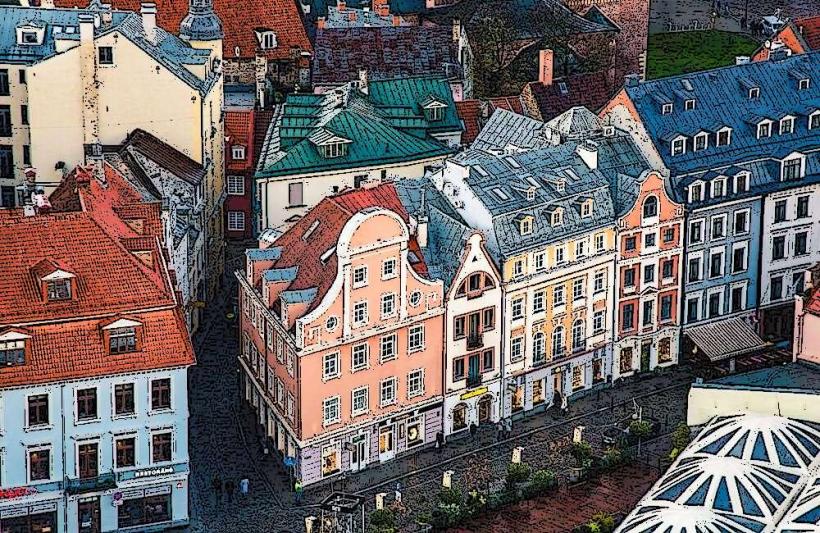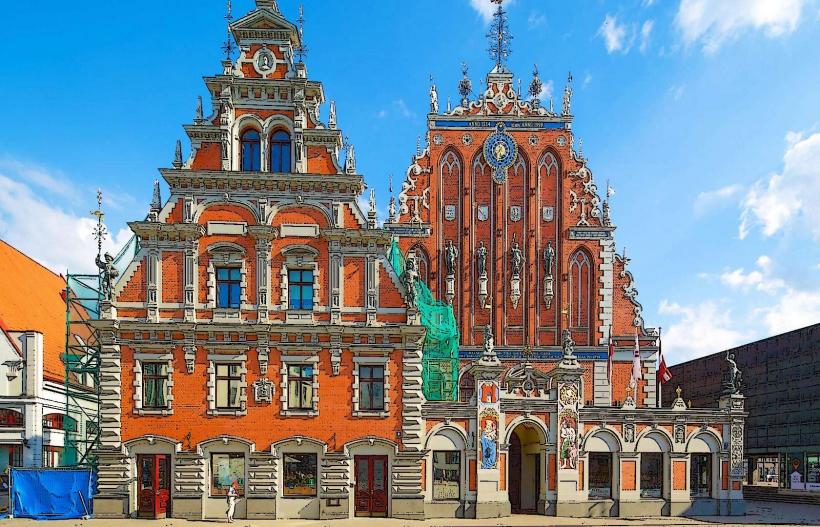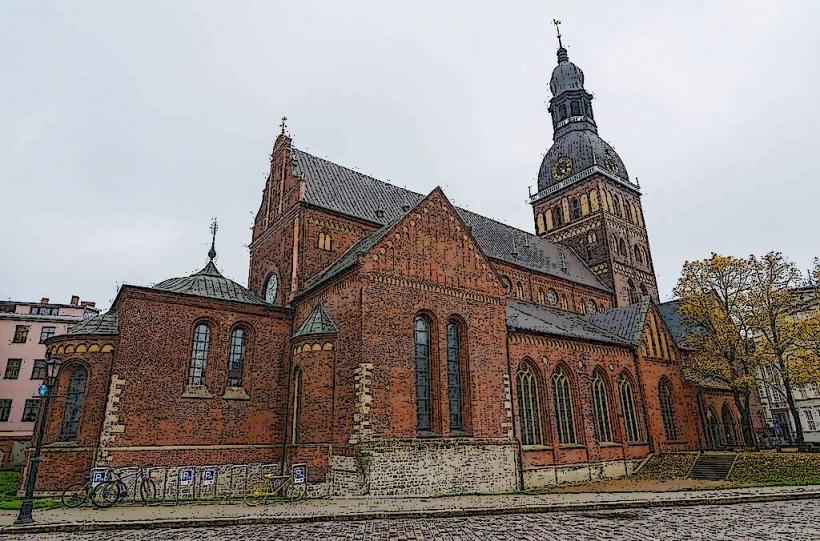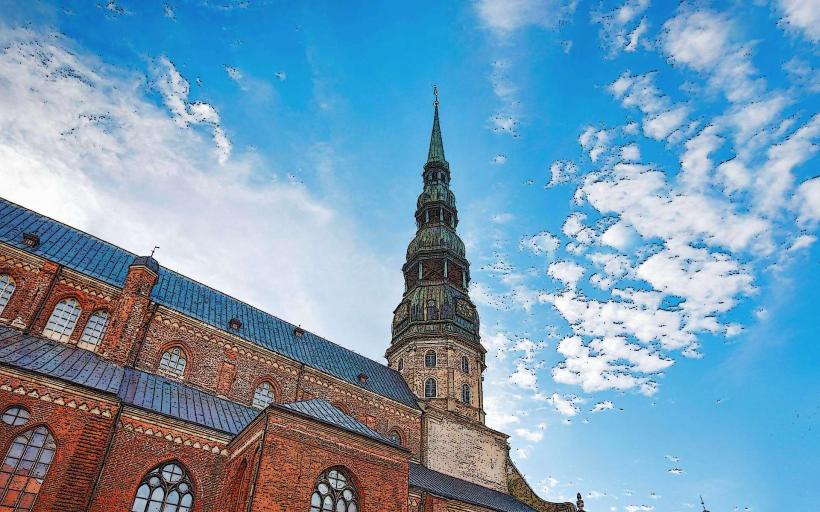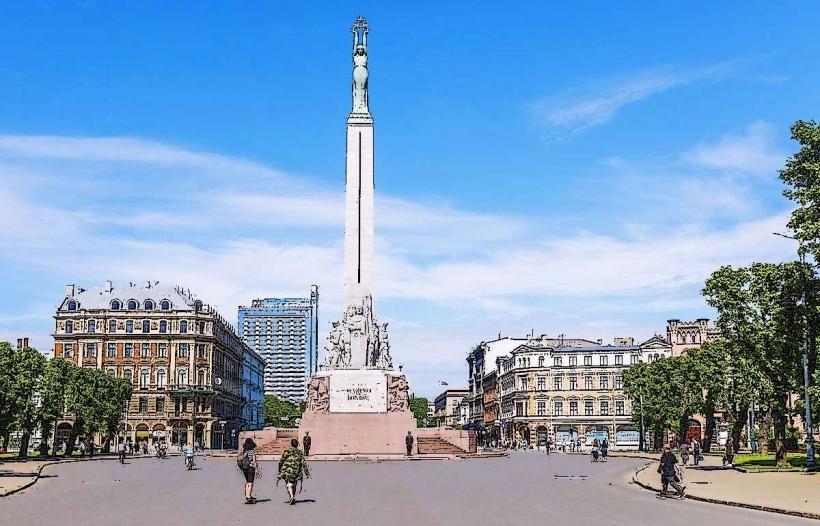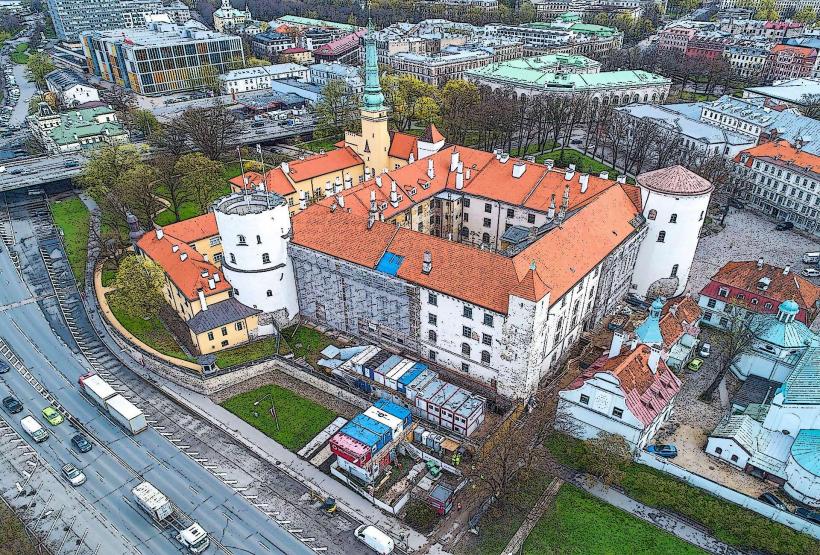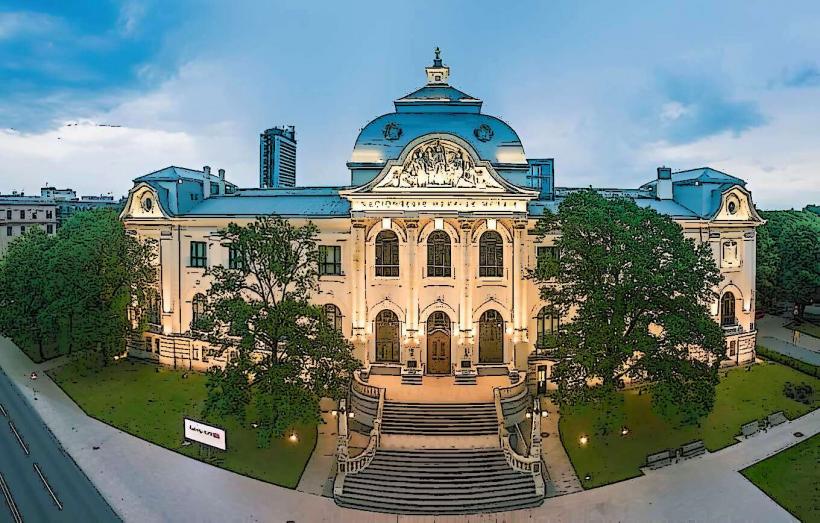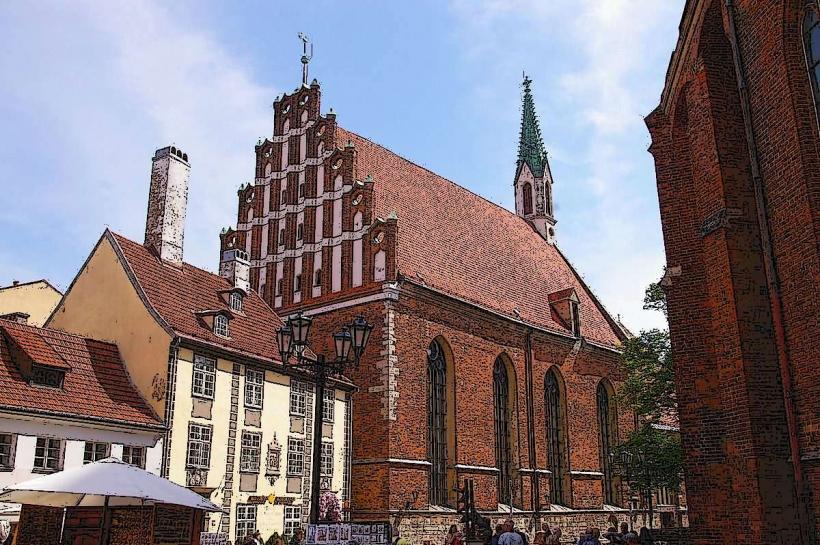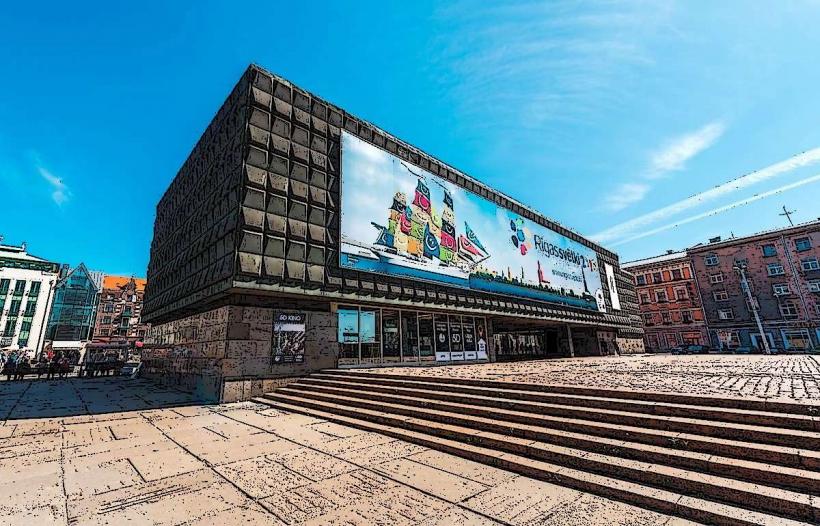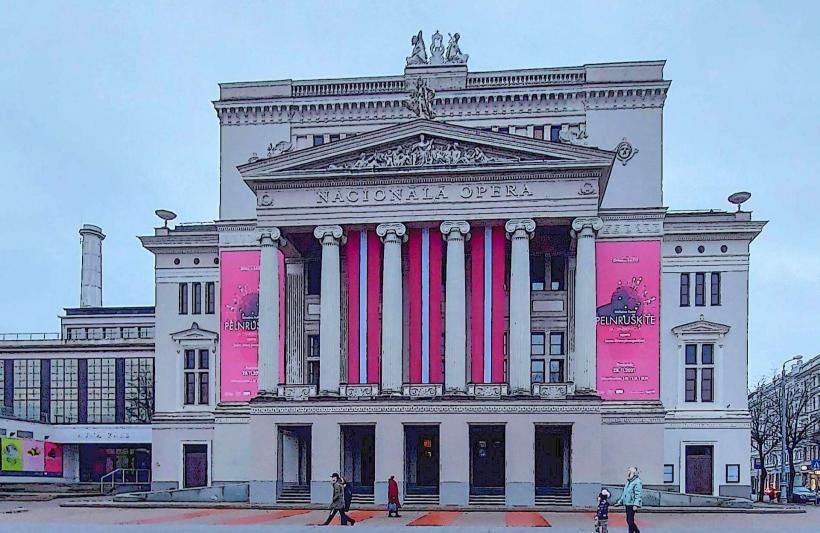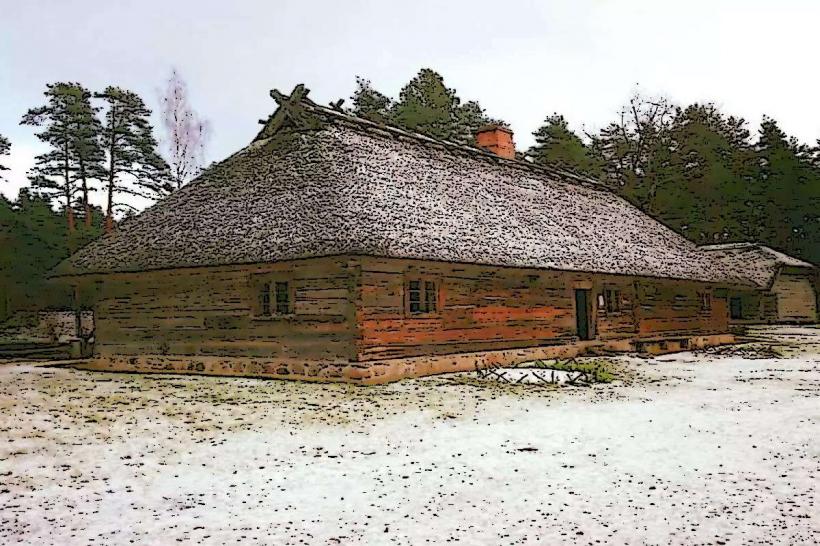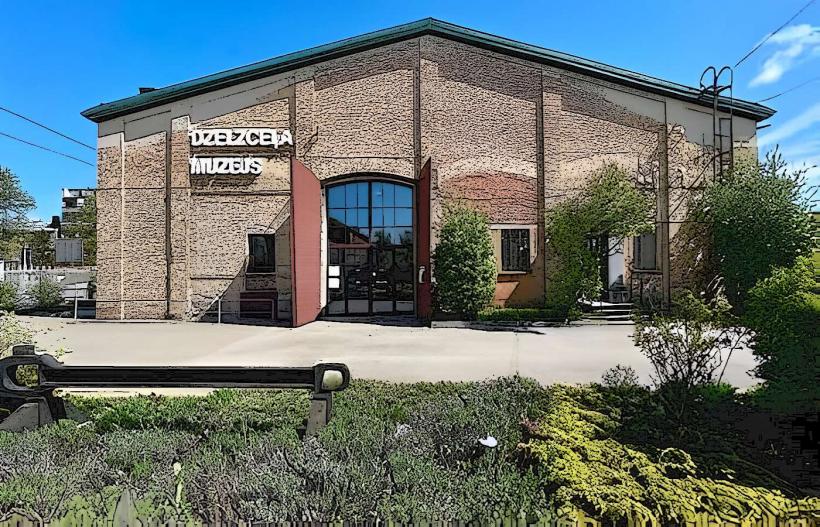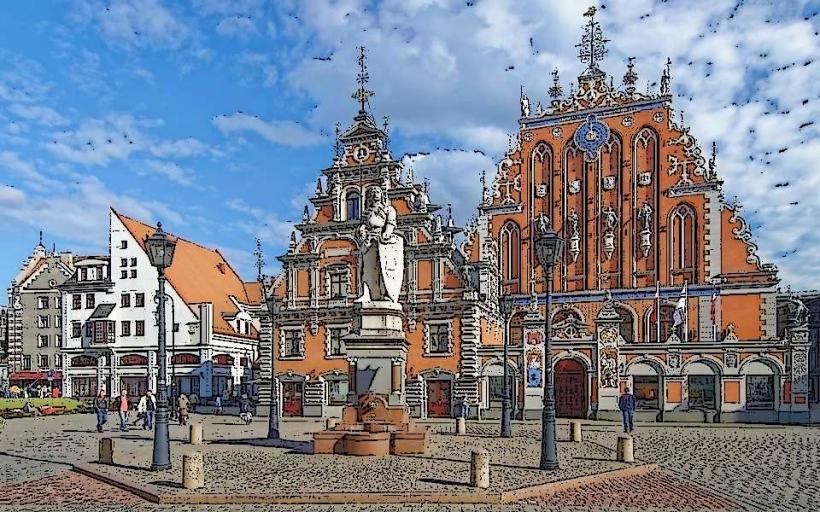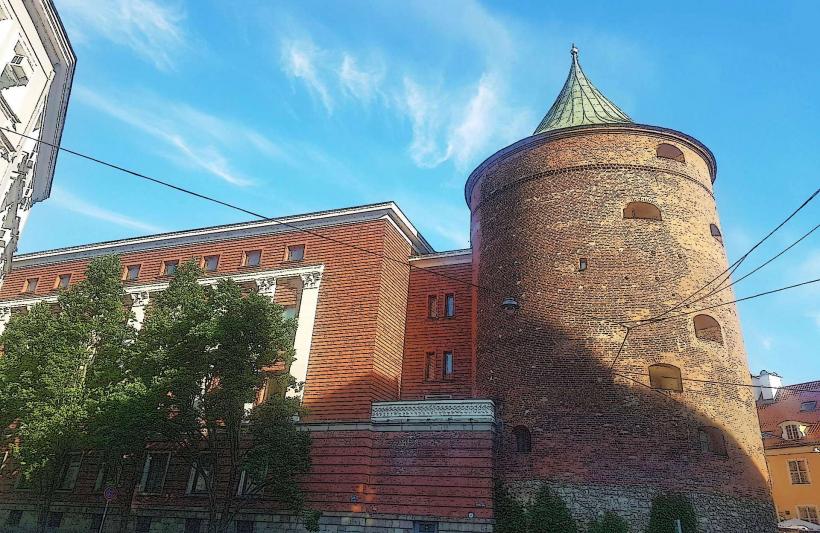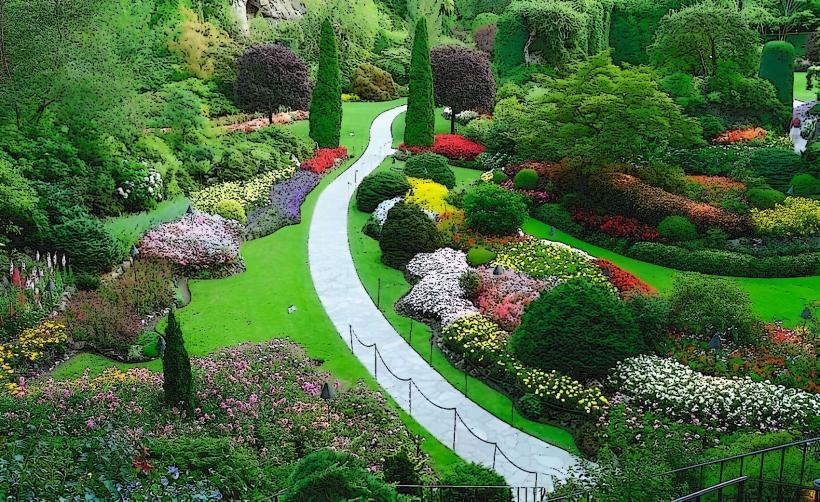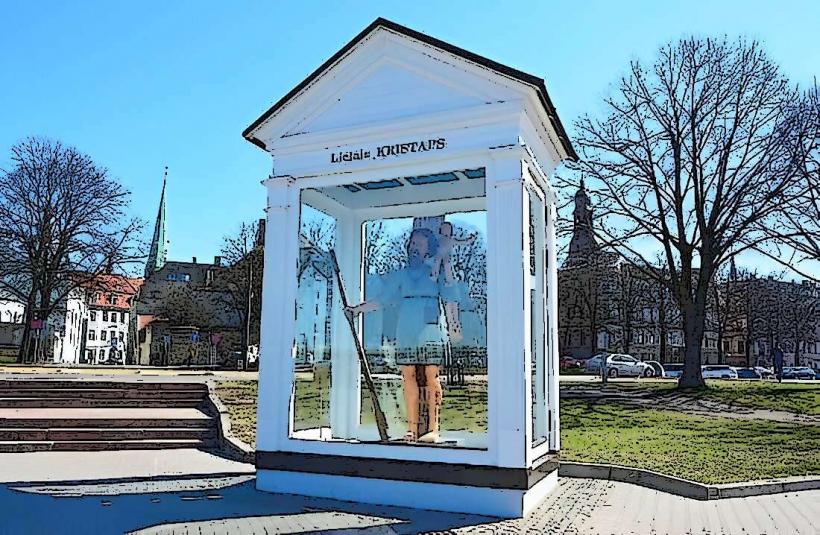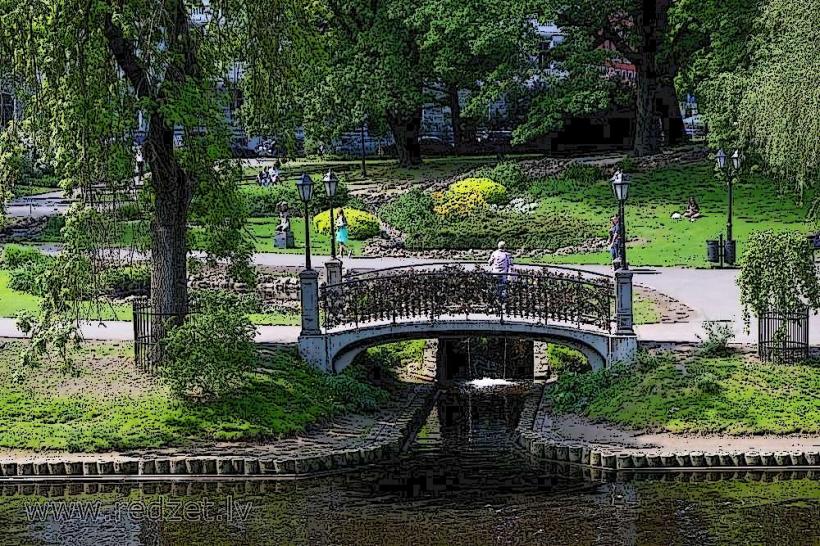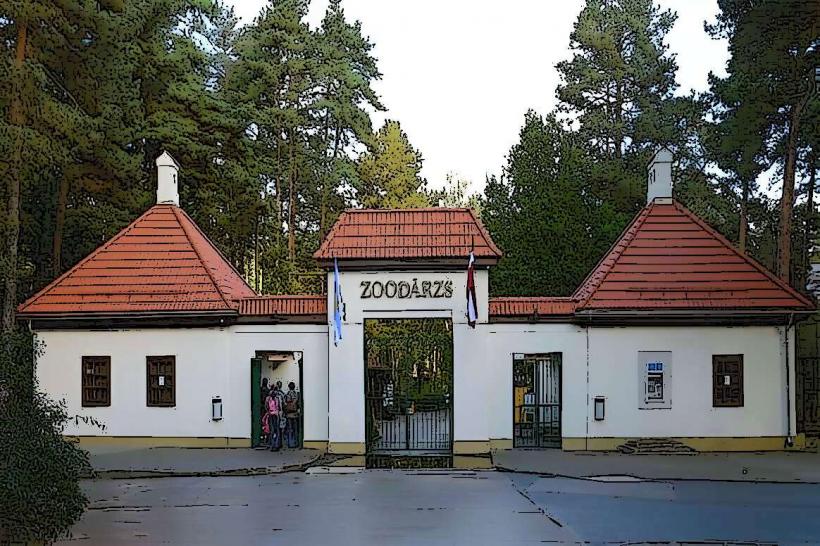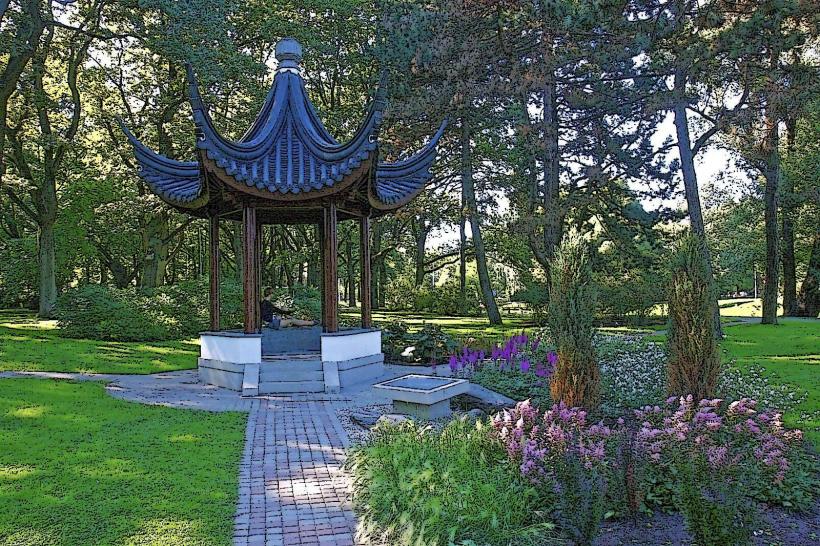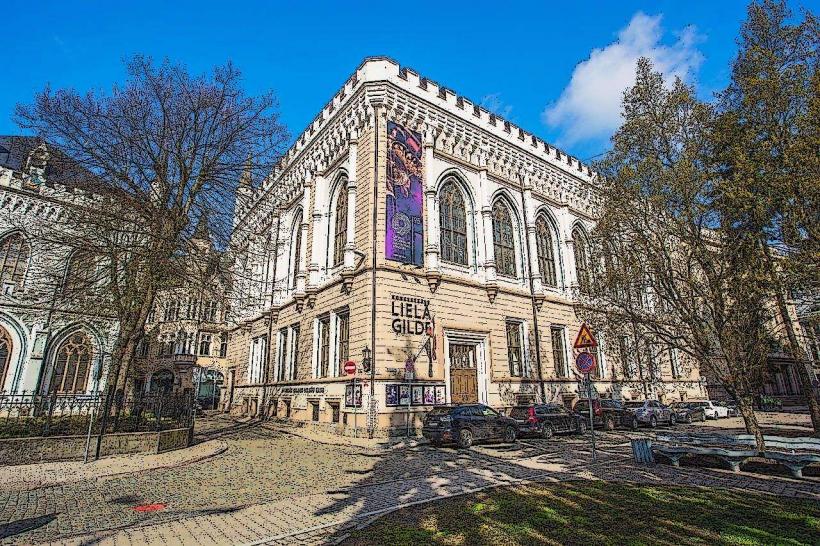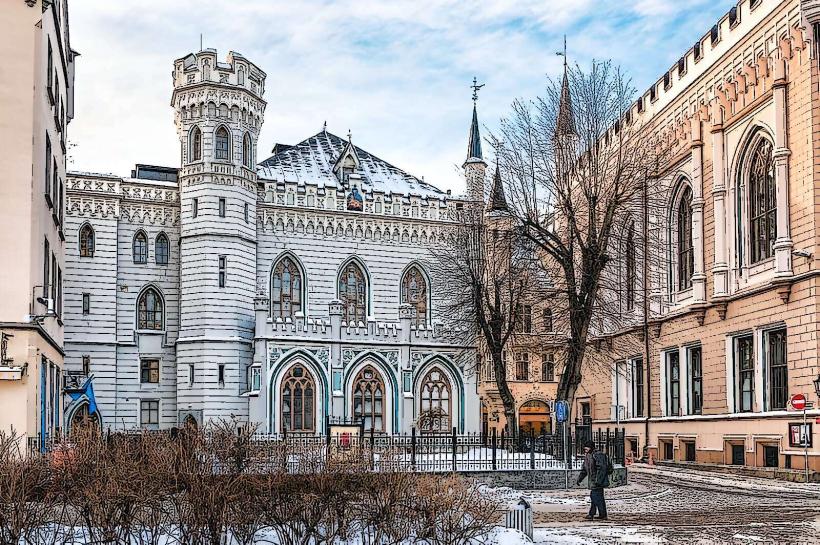Information
Landmark: Riga Central MarketCity: Riga
Country: Latvia
Continent: Europe
The Riga Central Market (Rīgas Centrāltirgus) is one of the largest and most vibrant marketplaces in Europe, offering a blend of history, culture, and culinary delights. Located near Riga’s Old Town, it is an essential destination for visitors seeking an authentic taste of Latvian life.
1. Historical Overview:
- Construction:
Built between 1924 and 1930, the market is a remarkable example of early 20th-century architecture. The unique feature of its design is the repurposing of World War I Zeppelin hangars, which form the iconic pavilions. - Opening:
Officially opened in 1930, it quickly became a bustling hub for commerce and was the largest and most modern market in Europe at the time. - UNESCO Heritage:
In 1998, the market was included in the UNESCO World Heritage Site designation as part of Riga’s historic center.
2. Architectural Features:
- Zeppelin Hangars:
The market's five massive pavilions were originally designed to house airships. They were adapted to serve as spacious market halls with arched steel frameworks and glass walls that allow natural light to flood the interiors. - Art Deco and Neoclassical Elements:
The pavilions and surrounding structures exhibit Art Deco and Neoclassical architectural features, creating a blend of functionality and elegance. - Open-Air Section:
In addition to the pavilions, there is an extensive open-air market offering fresh produce, plants, and seasonal goods.
3. Layout and Offerings:
Each of the five pavilions specializes in a particular category of goods:
- Pavilion 1 (Meat):
A wide variety of fresh and cured meats, including locally made sausages and smoked products. - Pavilion 2 (Dairy):
Fresh dairy products like milk, cheese, sour cream, and yogurt, many of which are from local farms. - Pavilion 3 (Fish):
A vast selection of fresh and smoked fish, including Latvian specialties such as smoked sprats and eel. - Pavilion 4 (Vegetables):
Seasonal vegetables, fruits, and herbs, both locally grown and imported. - Pavilion 5 (Delicacies):
A mix of baked goods, spices, sweets, and international specialties. - Open-Air Market:
Fresh flowers, honey, handcrafted items, clothing, and more.
4. Cultural and Culinary Experience:
- Authentic Latvian Food:
The market is an excellent place to sample traditional Latvian foods, such as:- Rupjmaize (dark rye bread)
- Sklandrausis (carrot and potato tart)
- Kvass (fermented bread drink)
- Local Interaction:
The market is a lively space where locals and visitors mingle, providing a glimpse into everyday life in Riga. - Street Food Stalls:
Recently, modern food stalls and cafes have been added, offering a mix of traditional and contemporary dishes.
5. Practical Information:
- Location:
Centrally located at Negu iela 7, next to Riga’s central bus and train stations. - Opening Hours:
Typically open daily:- Monday to Saturday: 7:00 AM – 6:00 PM
- Sunday: 7:00 AM – 5:00 PM
(Hours may vary for individual vendors or sections.)
- Accessibility:
Easily accessible by foot from the Old Town or via public transport.
6. Nearby Attractions:
- Riga Old Town:
A short walk from the market, offering historical landmarks and charming streets. - Academy of Sciences Building:
A Soviet-era skyscraper with an observation deck providing panoramic views of the market and the city. - Spīķeri Creative Quarter:
Adjacent to the market, this area features art galleries, cafes, and cultural spaces.
7. Tips for Visitors:
- Bring Cash:
While some vendors accept card payments, cash is more commonly used, especially in the open-air market. - Haggling:
Prices are generally fixed, but friendly bargaining may be acceptable for larger purchases. - Timing:
Visit early in the day for the best selection and a chance to see the market at its liveliest. - Photography:
The market's vibrant atmosphere and architectural uniqueness make it a great spot for photography, but ask vendors for permission before taking close-ups.
8. Why Visit Riga Central Market?
- Cultural Immersion:
The market offers an authentic experience of Latvian culture, cuisine, and daily life. - Historical Interest:
Its unique history and architecture make it a fascinating site for history enthusiasts. - Food Lover’s Paradise:
From local delicacies to international flavors, the market is a feast for the senses.
Conclusion:
Riga Central Market is more than just a shopping destination—it’s a vibrant cultural hub and a symbol of Riga’s history and resilience. Whether you’re a foodie, a history buff, or a curious traveler, this iconic market is a must-visit highlight of the city.

